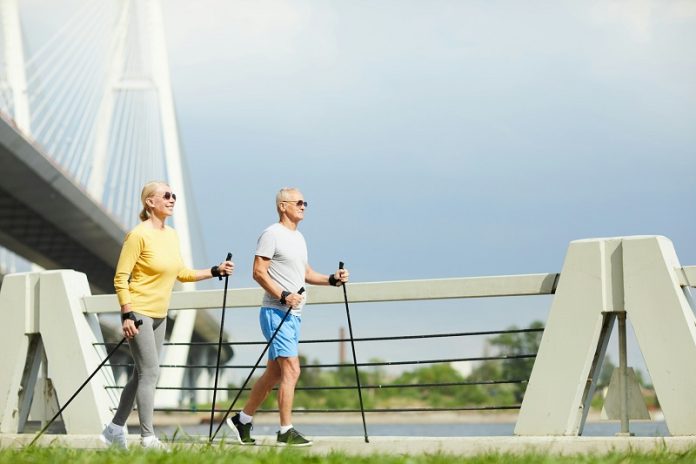
A new study from Finland has found that everyday physical activity does not slow down the bone loss that happens during menopause.
Researchers say that while regular movement is important for general health, it doesn’t provide strong enough impact on the bones to prevent them from weakening during this hormonal stage of life.
The study was done by scientists at the University of Jyväskylä, who followed 189 women aged 47 to 55 over a period of about 15 months.
These women were in the perimenopausal stage (the time before periods fully stop), and researchers tracked them until they reached postmenopause.
This is when the hormone changes that affect bone strength become more intense.
Menopause often leads to faster bone loss, increasing the risk of osteoporosis and fractures. Previous research has shown that special types of exercise—like strength training and jumping—can help keep bones strong as we age.
But it wasn’t clear whether the kinds of movements people do in everyday life—like walking, cleaning, or climbing stairs—could help during menopause.
To find out, the researchers measured the number and strength of daily movements using devices called accelerometers. They also measured bone strength and density in important parts of the body: the femoral neck (near the hip), femoral shaft, and tibial shaft (both in the legs).
The results, published in the journal Medicine & Science in Sports & Exercise, showed that bones in all of these areas weakened during menopause, even in women who were more active.
“We saw that high-impact movements—the kind that help bones stay strong—were very rare in everyday life,” said researcher Tuuli Suominen. While women who had more moderate or high-intensity impacts did have slightly stronger bones, these activities didn’t prevent the bone loss that comes with menopause.
This means that everyday activities alone aren’t enough to fight the effects of hormonal changes on bones. More focused exercise, such as weight-bearing and impact-loading workouts, may be needed to protect bone health during this time.
The study is part of the ERMA project, which looked at health changes during menopause. The researchers used hormone tests and menstrual diaries to track each woman’s stage of menopause. In addition to accelerometers, they used bone scans and CT scans to measure changes in bone structure and strength.
The team hopes future studies will test whether targeted exercises can slow bone weakening during menopause. For now, their advice is clear: “To protect your bones, consider doing specific bone-strengthening exercises—not just everyday movement.”
If you care about bone health, please read studies that plant-based diets can harm your bone health without these nutrients, and this bone problem may strongly increase COVID-19 death risk.
For more health information, please see recent studies that too much of this vitamin may increase your risk of bone fractures, and results showing this type of exercise may protect your bone health, slow down bone aging.



